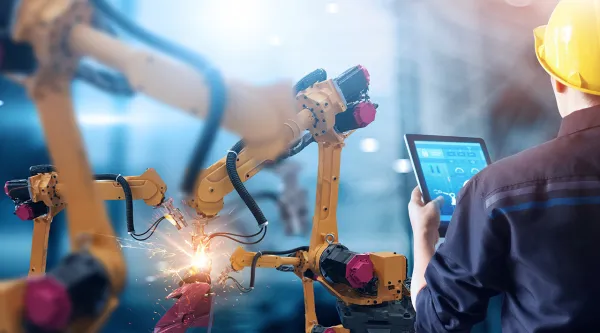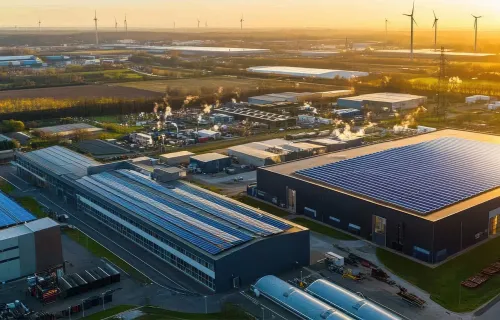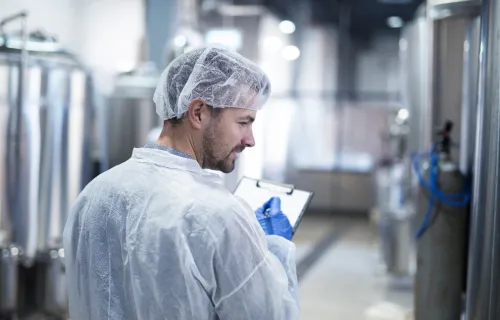In 2009, a multinational chemical manufacturing company decided to build a new factory to produce high-quality polypropylene-based intermediates, primarily for the automotive industry. Operational excellence and innovation are at the core of the company’s operations worldwide. They wanted to build a fully automated digital factory integrated with the expanded polypropylene (EPP) systems and MES. With our help, they built the digital factory they envisioned—one that remains a model for all their manufacturing locations around the world.
Building a truly autonomous digital factory
From “order in” to “order out,” the factory is fully automated. This means that once an order is received, a chain of processes is automatically triggered—from gathering the raw materials as per the request to planning and activating production to automating the delivery trucks’ arrival time.
However, as production is based on an “as and when” basis, resources must be monitored carefully to minimize wastage. In addition, automating operations and production reduce production costs dramatically while significantly improving operational levels.
Achieving operational excellence through systems integration
Integrating the MES and enterprise resource planning (ERP) system was key for success. By enabling the MES to manage all processes, from sales to logistics, the factory could achieve true operational excellence.
Our experts designed and implemented an Aspentech MES, which includes product modeling and a data historian (a software that logs production data from processes executed in the MES). The system monitors and controls all processes—from creating a production order to loading and shipping, and from mixing ratios to completing the order in the company’s ERP.
Using RFID readers, the MES ensures the trucks dock at the right silos and the loaded and unloaded volumes are accurate to the last ounce. The system immediately intervenes if something is about to go wrong. For example, during a check for material contamination, if the source and destination silo materials do not match, the MES sends an alert, and the transport process between the silos is stopped to prevent material contamination.
The data historian collects data from over 12,000 measuring points, enabling continuous optimization of workflows for incoming trucks, production lines, material sampling and quality registration—all in real time.
Realizing the full benefits of a digital factory
When our client approached us to help, the factory was already operating at 80% of its designed capacity. Today, it operates at 120% capacity—far more than the factory was designed to produce.
Our extensive knowledge and experience in implementing MES helped create a digital factory that enables employees—both in the office as well on the shop floor—monitor and control each and every production process easily and much more efficiently.
We continue to provide 24/7 support for the factory, constantly monitoring and helping to improve operations, for example, by analyzing collected data to reduce waste and energy consumption.
Key benefits
- Precise execution of every step in the production process
- Accurate materials reporting in the ERP
- Accurate classification of end product batches
- Optimal conditions to analyze and explain deviations in production to further optimize operations
- Maximum traceability of batches and raw materials
- Significantly reduced contamination risk
- Paperless production and minimal manual intervention
- Real-time visibility of production progress
- Full system integration of work processes





